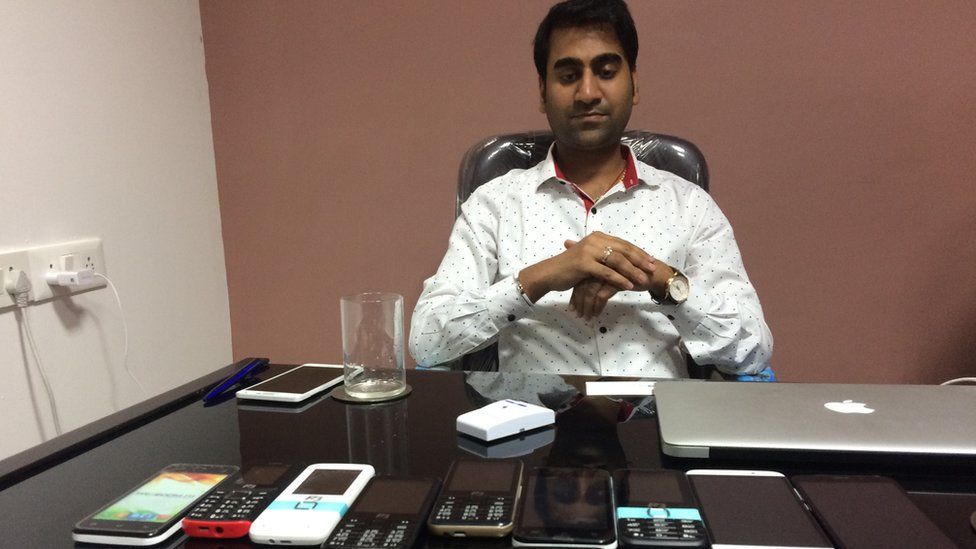India police arrest 'world's cheapest smartphone' firm boss
- Published

The director of Ringing Bells, the Indian firm which claimed to be selling the world's cheapest smartphone, has been arrested on allegations of fraud.
Mohit Goel was held after one of the phone's distributors claimed it had not received handsets it had paid for.
The Freedom 251 phone, priced at 251 rupees ($3.70; £3), went on pre-sale in February 2016.
But while many customers got their phones, Ringing Bells is accused of not fulfilling all of its orders.
'Similar complaints'
The distribution company, Ayam Enterprises, said it paid 3m rupees ($45,000; £35,800) after Mr Goel persuaded it to distribute the phone.
But it claimed only 1.4m-worth of devices were delivered and alleged staff received death threats if they "kept asking for the money again and again".
Police spokesman Rahul Srivastava confirmed the arrest to the BBC, and said that Mr Goel would appear in court on Friday.
"A number of similar complaints have been filed against him from other parts of the state. We want to investigate these claims thoroughly," he said.
"It's important for us to expose these scams because innocent people end up losing their hard-earned money.
Shilpa Kannan takes a closer look at the Freedom 251
"We are seeing an increasing number of technology-related frauds. I appeal to people to be sure before investing money into such schemes."
'Ponzi scheme'
Ringing Bells first started taking money for the phones in February last year, initially promising delivery by June.
Demand for the cheap handset, which it sold through its own website, caused the company's servers to crash.
At the launch, Mr Goel had said the phone would be locally made as part of the Make in India program, promoted aggressively by Prime Minister Narendra Modi's government.
But there were plenty of questions around the firm's business model, with many asking how it could be offered so cheaply. Several analysts have described the phone as a "ponzi scheme".
- Published18 February 2016
- Published7 July 2016